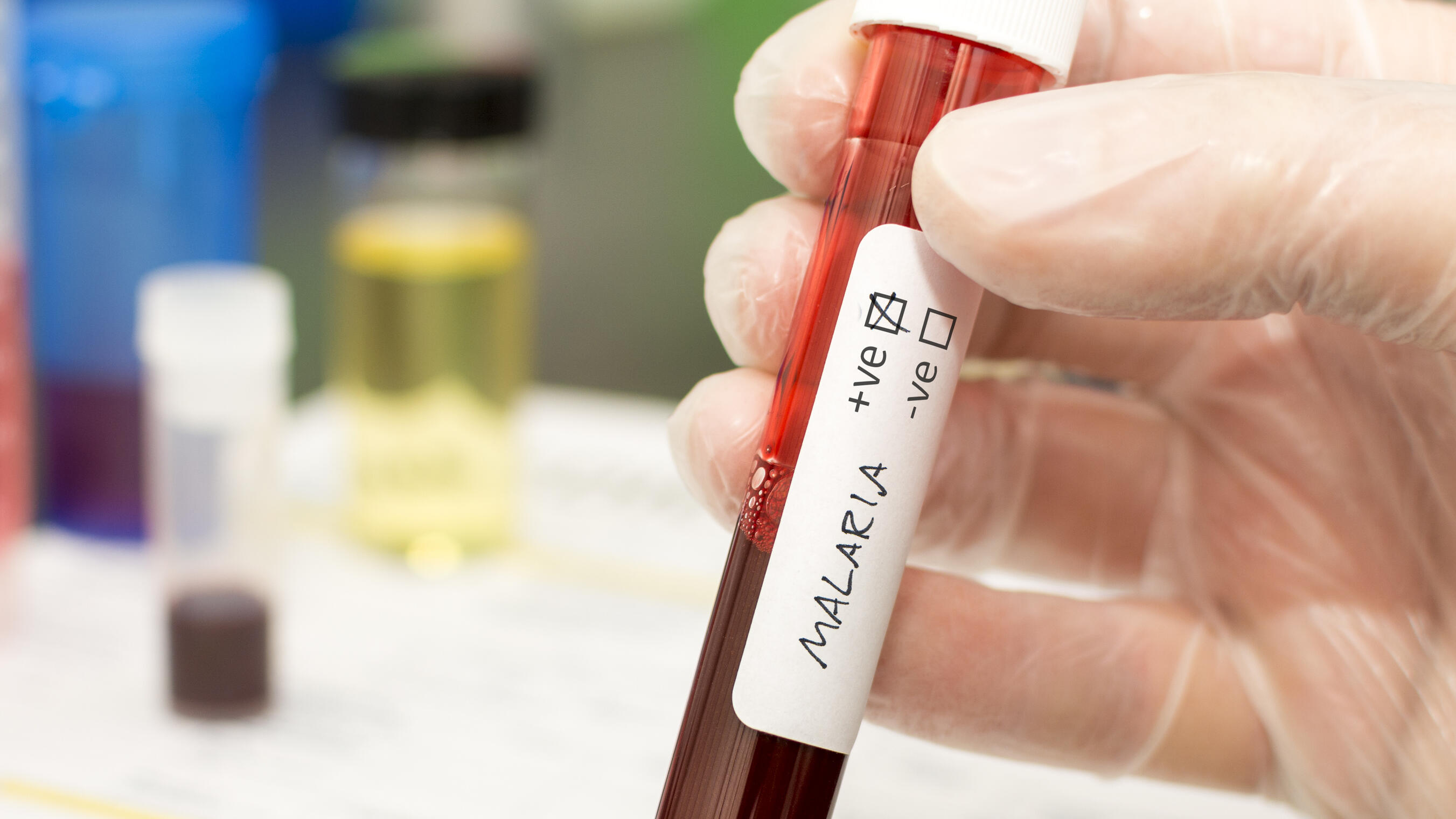
Researchers from LSTM have looked at the efficacy of using a novel artemisinin-based combination therapy (ACT), pyronaridine-artesunate, to treat malaria in areas where resistance to other ACTs is becoming a problem. The analysis finds it at least as effective as the currently used ACTs, if not better.
The World Health Organization (WHO) recommends ACTs to treat uncomplicated Plasmodium falciparum (P. falciparum) malaria. However, concerns over rising artemisinin resistance have led global initiatives to develop new partner drugs to protect their efficacy.
In this update of a Cochrane Review, independent LSTM authors Joseph Pryce and Paul Hine assessed the efficacy of pyronaridine-artesunate in treating malaria. They found that the treatment was as good, if not better than other ACTs; and while some people receiving it have liver function tests suggesting mild liver injuries, there was no evidence that this injury was severe or irreversible.
LSTM’s Dr Hine is corresponding author on the review. He said: “The need to find novel ACTs is important so that we can protect the efficacy of the artemisinin derivatives within them. The evidence that we found clearly showed at pyronaridine-artesunate performs as well, if not better than some of the currently marketed ACTs.”
The review team looked at the results from 10 included trials that compared pyronaridine-artesunate with other currently-used treatments for P. falciparum malaria. Five of the studies looked specifically at the safety of the drug, and two of the trials exclusively recruited children under the age of 12.
Joe Pryce, one of the authors, said: “We found that pyronaridine-artesunate did increase the risk of having blood tests that showed mild liver injury, but there was no evidence that this caused severe or irreversible damage. The findings of this review’s efficacy analysis support the recommendation for using pyronaridine-artesunate in areas of multiple drug resistance, providing effective malaria treatment where other treatments may be failing.”
This Cochrane Review was co-ordinated by the Cochrane Infectious Diseases Group (CIDG), which has its editorial base at LSTM. The CIDG has been in operation since 1994 and consists of over 600 authors from 52 countries and is supported by UK aid from the UK Government for the benefit of low- and middle-income countries (project number 300342-104).
Pryce J, Hine P. Pyronaridine‐artesunate for treating uncomplicated Plasmodium falciparum malaria. Cochrane Database of Systematic Reviews 2019, Issue 1. Art. No.: CD006404. DOI: 10.1002/14651858.CD006404.pub3.